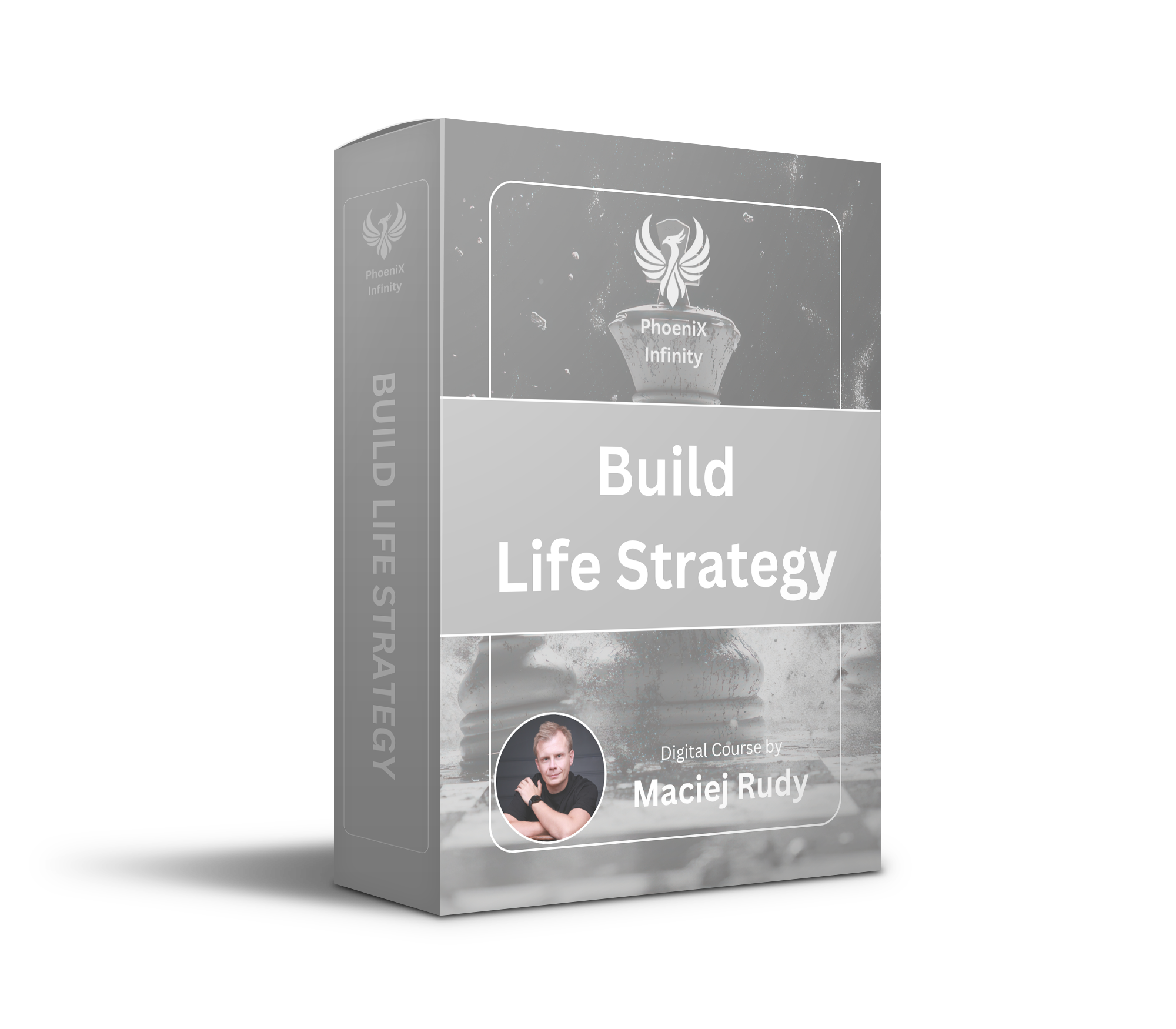Personal Growth Frameworks
Jun 19, 2025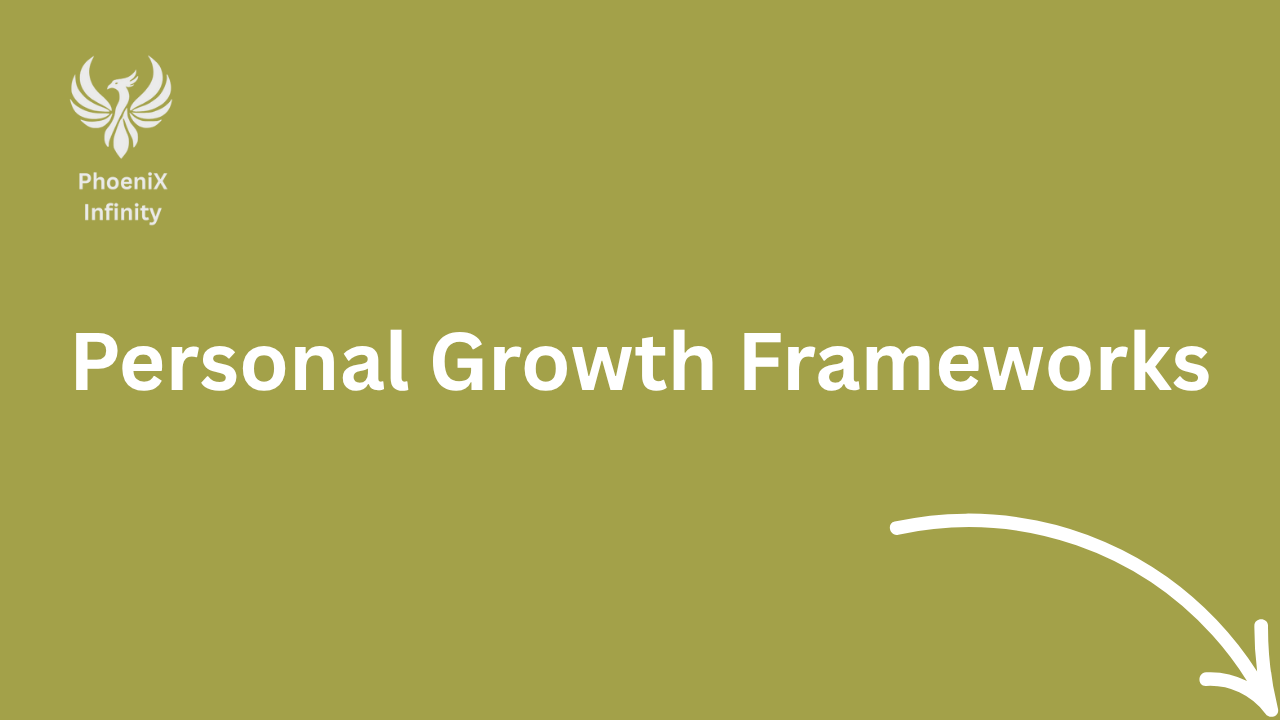
Drowning in Information, But Starving for Growth?
We live in the most informed time in human history. Every minute, thousands of new podcasts drop, books are published, LinkedIn posts are shared, and courses launch with promises of transformation.
And yet…
Many high-performing professionals feel stuck. They read, scroll, highlight, and nod but nothing changes.
We chase growth. But we don’t feel like we’re growing.
Why?
Because access to knowledge isn’t the problem anymore.
It’s what we do with it that makes or breaks real personal development.
Welcome to the Skills Age – Where Information Isn’t Enough Anymore
Once upon a time, knowledge was power. Just having access to a library of books or exclusive education made you elite.
Then the Internet changed everything.
Information became free, fast, and infinite.
But here’s the twist: information overload has replaced information scarcity.
So, what’s next?
We’re now in the Skills Age – where progress is no longer about how much you know, but what you do with it.
Where growth means turning learning into capability – not collection.
We don’t need more content.
We need better frameworks.
Systems that turn knowledge into traction. Into habits. Into meaningful results.
That’s where personal growth frameworks come in.
The Real Reason You’re Not Growing
Let’s be blunt: most people fail to grow not because they’re lazy, but because their learning is reactive, shallow, and disconnected from real life.
Here’s why:
We chase trends, not priorities.
We jump from one topic to the next. From “10x habits” to “AI mastery” to “leadership secrets.”
But chasing everything means mastering nothing.
We skim, but don’t apply.
We binge-watch YouTube productivity tips and highlight entire books – then return to the same routines.
We learn to feel good, not to change.
Short videos give us dopamine hits, not direction.
“Feeling inspired” isn’t the same as building capability.
We forget how adults actually learn.
And that’s the key shift.
If you want to grow – not just learn – you need to learn like an adult.
Adult Learning: The Missing Piece of Every Growth Plan
If you’re a business leader, builder, or high performer trying to grow faster, you need to hear this clearly:
You don’t learn the same way now as you did when you were 15.
That’s not just intuition. It’s science.
Malcolm Knowles, often called the father of adult learning theory, defined what’s now widely accepted as andragogy: the science of how adults learn.
There are his six timeless principles and what they mean for your personal growth today:
1. Adults Are Self-Directed Learners
You don’t passively accept information. You filter it through purpose, identity, and autonomy.
And that’s powerful – but also dangerous.
If a piece of content doesn’t feel immediately relevant, you’ll reject it – even if it’s useful later.
Frame your learning around questions you actually care about.
Don’t ask “What should I learn?”
Ask “What do I need to solve the problems in front of me right now?”
When you learn to serve your goals, your brain turns on.
2. Your Experience Is Your Greatest Learning Engine
Adults don’t learn in a vacuum.
You bring years of success, failure, judgment, context – and ego – to the table.
When a new idea connects with your past, it becomes sticky.
When it doesn’t, it gets filtered out.
Great growth frameworks recognize this. They ask:
- What patterns have shown up before?
- How does this challenge reinforce or challenge your past experience?
- Where might your assumptions be outdated?
You don’t need to “start from scratch.”
You need to upgrade your operating system.
3. You’re Goal-Oriented – So Make the Goal Real
Most adult learners are not learning for fun.
You’re learning to get promoted, lead better, delegate faster, scale a team, or stop burning out.
Relevance drives retention.
If you can’t immediately connect what you’re learning to something in your life, you won’t stick with it.
Ask yourself:
“If I could master this skill, what would it allow me to do that I can’t do now?”
When you tie learning to outcomes you care about – money, impact, freedom, clarity – you accelerate it.
4. Timing Is Everything
You’re ready to grow when life demands it.
That’s why people binge leadership books after getting promoted – not before.
It’s why public speaking books hit differently the week you land a keynote.
Adults learn when:
- The pain of staying the same becomes obvious.
- A new opportunity forces a new capability.
- A life event reframes what matters.
Your readiness determines your retention.
So instead of asking, “Why didn’t I learn this earlier?”
Ask: “What am I ready for right now and how do I go all in?”
5. You Crave Real-World Tools, Not Abstract Theory
You don’t need a lecture on strategy.
You need a worksheet to define your 3-year vision and next milestone.
You don’t need a history of decision-making models.
You need a checklist for making better decisions on your next project.
That’s what good frameworks are all about: bridging insight to action.
Learning Tip:
When you finish a podcast or article, ask:
“What will I do differently because of this?”
Information becomes transformation only when it meets action.
6. Purpose, Progress, and Autonomy Drive Adult Motivation
Forget carrots and sticks.
You’re a high performer. You’re moved by meaning.
That’s why vague goals fall flat.
And why courses that promise “10x results” don’t move you unless they’re tied to a purpose you deeply believe in.
Reflect:
- Why does this skill matter to me now?
- How does it support my future?
- Who am I becoming by learning this?
True growth happens at the intersection of ambition and alignment.
And that brings us to the next section…
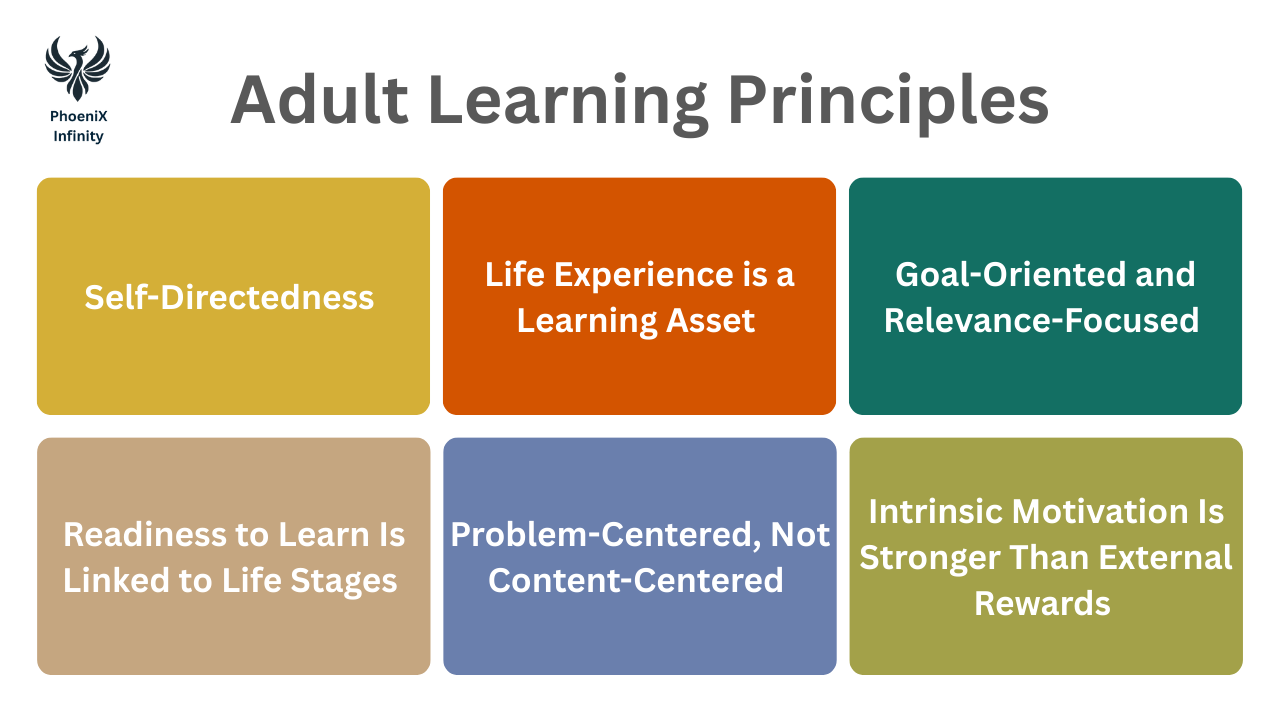
Information Hoarding vs. Skill Transformation
Let’s call it out:
We’ve confused learning with scrolling.
And personal growth with content consumption.
We feel productive reading the newest leadership book…
But two weeks later, we haven’t led any differently.
We binge-watch 5 YouTube videos on time management…
But still snooze our alarm every morning.
Why?
Because we’ve built information habits, not transformation habits.
Here’s What Happens When You Don’t Have a Growth System:
- You chase the next idea – instead of mastering the last one.
- You dabble in skills, but never feel confident applying them.
- You mistake inspiration for action – and burnout follows.
You start to doubt your own potential.
You think, “Maybe I’m not cut out for this.”
When in reality… you just need a better structure.
Build a Real Growth Framework That Works
So how do you build a personal growth system that works – one that cuts through the noise and actually changes your life?
Here’s the 5-part system that turns knowledge into real capability:
1. Prioritize the Right Growth Area
Start with one question:
What’s the ONE skill that, if I mastered it, would change everything?
Most people fail because they try to learn too much at once.
Growth requires focus.
Pick ONE area for the next 90 days.
Make sure it’s:
- Relevant to your current career/life stage
- Aligned with your 1–3 year vision
- Urgent enough to motivate action
Examples:
- Communication for better influence
- Time management for faster execution
- Strategic thinking for that promotion you desire
2. Curate High-Quality Inputs (Not More Content)
Don’t binge 20 podcasts.
Pick three great resources – and go deep.
A good rule of thumb:
- 2–3 books
- 1 practical course or mentor
- 1 real-life challenge to apply it
Depth > Volume.
You don’t need 100 opinions. You need one great insight applied 100 times.
Summarize what you’re learning weekly in your own words. That’s where you start retaining knowledge.
3. Summarize, Synthesize, and Plan
Here’s where 99% of people stop.
They learn, but they don’t translate learning into action.
So build a Growth Tracker:
- Key takeaways from each resource
- Insights that connect to your real-life challenges
- A plan for how you’ll apply the learning
Don’t trust memory. Build systems that will put those learnings into practice.
4. Execute for 8–12 Weeks
This is the magic window.
Consistency is the key for growth.
- Block 30–60 mins weekly to work on your new skill.
- Track 2–3 actions you’re taking to apply the learning.
- Reflect weekly: what’s working, what’s stuck?
Treat it like a sprint.
You’re not trying to “know more” – you’re trying to do differently.
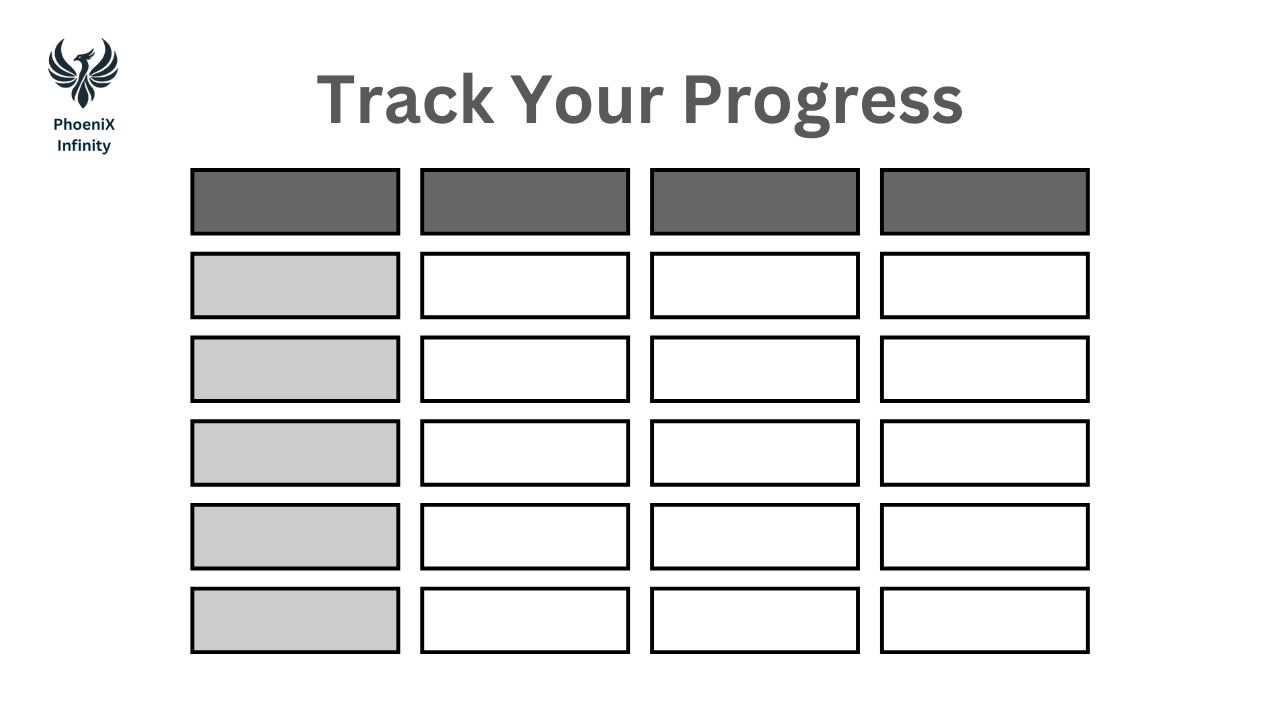
5. Reflect, Adjust, and Lock It In
After 2–3 months, stop and review:
- What changed?
- What still feels difficult?
- Did this skill unlock new growth?
- What do you want to go deeper into?
Then choose:
- Go deeper into this skill?
- Pivot to an adjacent area?
- Shift focus to a new domain?
Reflection is where your growth becomes permanent.
It’s how we close the loop and re-prioritize what’s next.
Layer Your Growth Into Your Life Strategy
Most people don’t fail because they’re unmotivated.
They fail because they’re misaligned.
Learning in a vacuum doesn’t stick.
You need your growth to serve your life strategy – not distract from it.
That means three things:
1. Your Growth Must Serve a Bigger Vision
Growth for growth’s sake is unsustainable.
But when your skill-building connects to your life purpose, your fuel becomes unlimited.
Ask:
- What do I want my life to look like in 3–5 years?
- What skills are required to make that vision real?
If your answer is “I want to lead a business unit,” then your next growth focus might be communication, strategic thinking, or financial acumen – not just general productivity hacks.
2. Growth Must Solve a Pain Point You Actually Care About
You’re more likely to follow through on your growth plan if it removes a frustration that’s real.
Examples:
- If you’re overwhelmed → learn systems design
- If you’re always in meetings → learn how to delegate
- If you’re feeling invisible → work on personal brand and internal influence
The more personal the pain, the higher the follow-through.
3. Growth Must Match Your Season
If you’re navigating a new role, don’t try to master five topics at once.
If you’re in a family season, maybe now isn’t the time for a 12-hour-a-week side hustle course.
Be honest about your current bandwidth – then build accordingly.
Growth doesn’t need to be extreme.
It needs to be aligned.
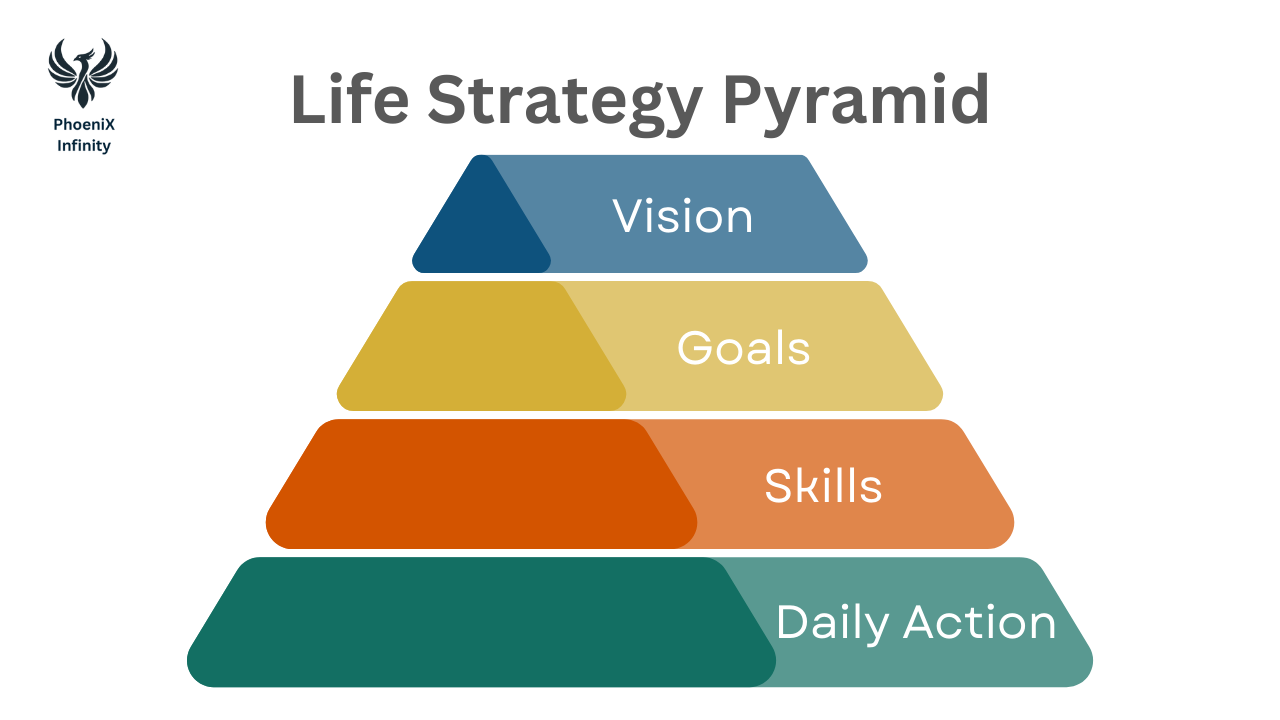
Growth Requires Resilience
Even the best growth system will fail without resilience.
Because growth isn’t linear. Motivation fades. Life interrupts.
Here’s how to build resilience into your learning:
- Define your “why” in writing. Refer to it every week.
- Use micro-goals. Win the week, not the year.
- Create feedback loops. Reflect weekly and adjust.
- Celebrate process over outcomes. Execution is a win.
- Share your goals. Accountability increases follow-through.
You’re not just learning a skill – you’re building the discipline to become the kind of person who finishes what they start.
And that’s what separates high performers from everyone else.
Growth frameworks don’t exist in a vacuum.
They are part of the infrastructure of a meaningful life.
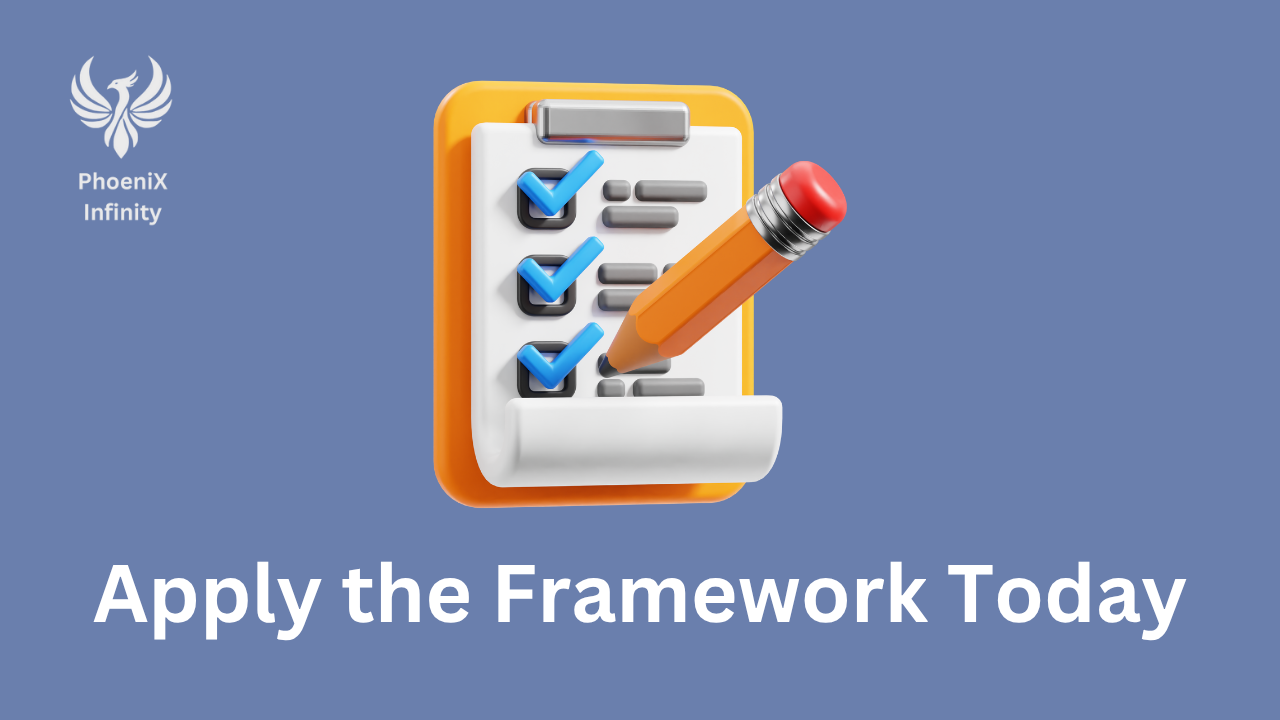
Your 6-Step Growth Activation Plan
You’ve got the framework. Now let’s turn it into reality.
Step 1: Choose Your Growth Priority
Pick one skill. One domain. 90 days of focus.
Step 2: Curate 3–4 Resources
Pick the best content – books, courses, or mentors.
Step 3: Create a Summary & Action Plan
Build your tracker. Turn insights into steps.
Step 4: Commit to a Execution
2–3 months of consistent action. Small, specific moves.
Step 5: Reflect and Review
Journal what’s shifted. Celebrate wins. Identify what’s next.
Step 6: Integrate Into Your Life Strategy
Ask: Does this serve my long-term goals? Adjust accordingly.
Don’t Just Learn – Lead Your Growth
In a world overflowing with knowledge, the most successful professionals will be those who can:
- Cut through the noise
- Apply learning with discipline
- Grow with intention
Don’t be an information hoarder. Be a transformation architect.
It’s not about how much you consume – it’s about who you become in the process.
Ready to Build Your Life Strategy?
If you're serious about turning personal growth into long-term alignment, check out our Build Your Life Strategy training. You'll get a toolkit, framework, and guidance to:
✅ Prioritize what truly matters
✅ Align your skills with your long-term goals
✅ Build momentum – without the burnout
Growth doesn’t come from reading more.
It comes from building a system – and executing it with intention.
Stay connected with news and updates!
Join our mailing list to receive the latest news and updates from PhoeniX.
Don't worry, your information will not be shared.
PS - You will get a surprise bonus!
I hate SPAM. I will never sell your information, for any reason.


